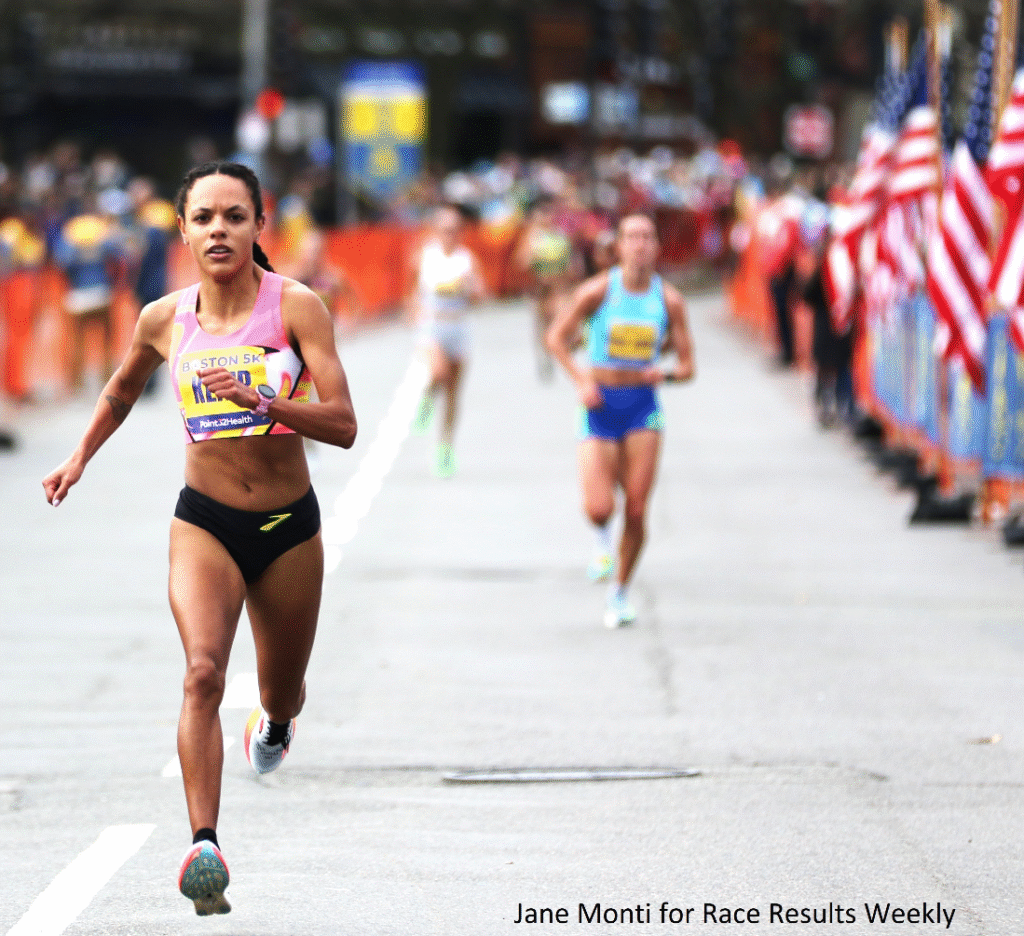By David Monti, @d9monti
(c) 2025 Race Results Weekly, all rights reserved
(16-May) — A woman running a 2:38:49 marathon. A man running a 14:06 5-K. A woman running a 34:34 10-K. A man running a 1:04:14 half-marathon.
What did all of those 2024 road running performances have in common? They all generated a $1000 prize money payment, just four of a total of 235 one thousand dollar (or one thousand euro) payments recorded by Race Results Weekly (RRW) last year. RRW sifted through the results of thousands of road races to determine what it took to make $1000 in prize money.
Not surprisingly, the range of those performances was very broad, from truly world-class marks to times more typically associated with recreational runners.
For instance, in the marathon –where RRW flagged 90 one thousand dollar payments (45 to men and 45 to women)– the average time to earn $1000 was 2:39:10 for women and 2:16:37 for men. The average finish place for $1000 payments was 5.4 for women and 5.5 for men. The range of times to earn $1000 was huge, from 2:23:52 to 3:10:24 for women, and 2:07:09 to 2:30:50 for men.
At the top end of the performance scale, Kenya’s Linet Masai finished seventh at the Mainova Frankfurt Marathon last October in 2:23:52 and earned €1000 (equaling $1080 at the time). On the men’s side, Italy’s Eyob Faniel finished seventh at the Zürich Maratón de Sevilla in 2:07:09, also earning €1000. For comparison, running the same times at the TCS New York City Marathon a week later, both Masai and Faniel would have earned $100,000 and been the race winners (theoretically, at least).
At the other end of the scale, American Meredith Steely ran 3:10:24 (2nd place) at the high-altitude Boulderthon Presented by Puma in Colorado and earned $1000, the slowest marathon mark in the RRW list. At the same race Esteban Trujillo finished second on the men’s side and clocked 2:30:50. His performance was also good for $1000.
Looking across the most popular distances, these were the fastest and slowest performances to earn $1000 (or €1000):
Fastest marks to earn $1000:
Men Women
Mile 3:51.9 4:20.4
5 km 13:44 15:25
10 km 27:29 30:38
Half-Marathon 59:21 1:07:08
Marathon 2:07:09 2:23:52
Slowest marks to earn $1000:
Men Women
Mile 4:09.1 4:44.5
5 km 14:10 16:47
10 km 30:23 36:38
Half-Marathon 1:08:21 1:18:35
Marathon 2:30:50 3:10:24
Comparing results over a range of distances and events highlighted the diversity of the global road running scene. Some races use pacemakers and are speed-oriented, while others are held championship-style with no pacers. Some events have flat courses at sea level, while others are contested on hilly courses at altitude. Some events pay larger appearance fees in relation to their prize money, while others pay no appearance fees and only offer prize money. Some races have travel budgets which allow top athletes to participate no matter where they live, while others have no travel budget and can only support athletes who live near the race.
In addition many organizers offer special prize money for home-country athletes, and this is especially true in the United States. For instance, Race Results Weekly only credited Henry Wynne for the $1000 he earned for eighth place at the Asics Falmouth Road Race last August. However, he also earned an additional $2000 for being the second American.
A complete list of all of the payments is here (file sorted chronologically, from January to December):
PHOTO: Erika Kemp finishing fifth in 15:25 at the 2024 Boston 5-K presented Point32Health where she earned $1000 in prize money (photo by Jane Monti for Race Results Weekly)
ENDS
Kemp_Erica_Boston_5K_Finish_2024_Jane_Monti_With_Credit.jpg

